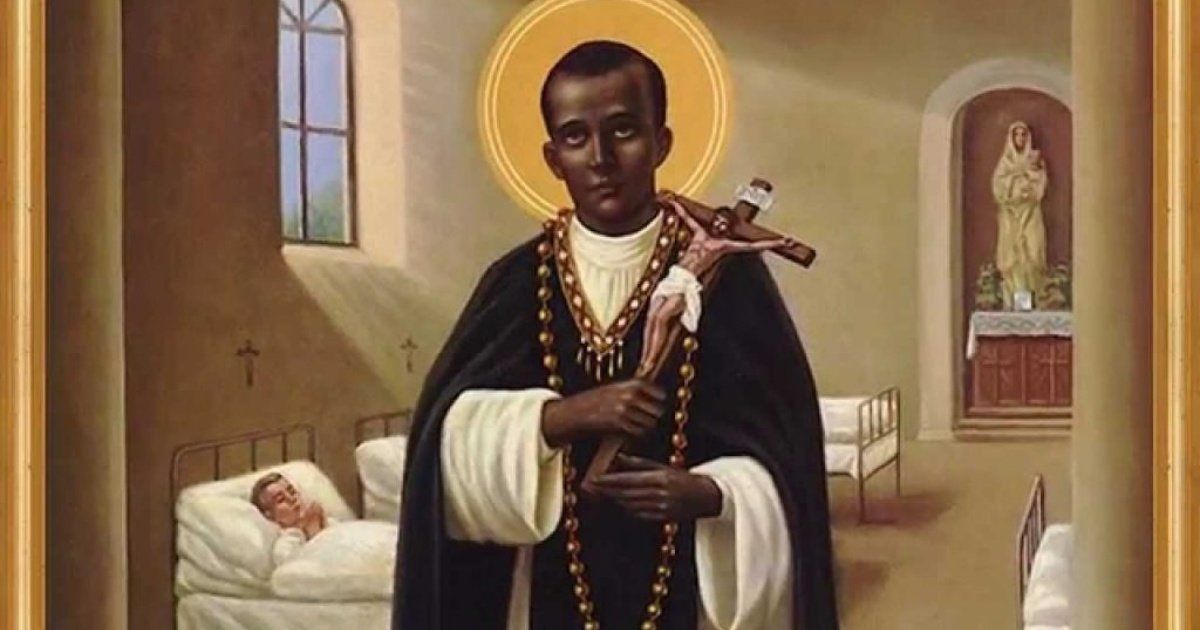Message of Abbot Paul - Wednesday 3rd November

Message from Fr Paul for Wednesday, 3rd November 2021
Today we celebrate one of my very favourite saints, St Martin de Porres, the first man of colour to be canonised in modern times. In fact, his father was a Spanish nobleman and his mother a freed slave from Panama, living in Lima. He died on this day in the year 1639 at the age of 59, a month short of his 60th birthday. He spent most of his life as a Dominican brother. Even as a child, born into poverty, for his father abandoned his mother once she became pregnant, nevertheless he would give the family’s meagre resources to beggars who came to the door. He became known on the streets of Lima, Peru, as “Martin de la Caridad,” generous Martin. As a brother he continued to care for the poor and the sick who came to the convent door. Inside, he looked after the sick, worked in the kitchen and did the cleaning. He is always shown with a sweeping brush. Countless miracles were attributed to him in life, long before he became a saint. Animals loved him and flocked to him. Statues and portraits of St Martin often show him with a dog, a cat, a mouse and a small bird all eating from the same plate, a symbol of how the Church and the world should be, united and at peace, sharing all we have. St Martin should have been named the patron saint of COP 26!
Our Gospel passage today comes from Luke, (Lk 14: 25-33), where Jesus teaches the great crowds following him about the true meaning of discipleship. At first sight, his words sound harsh and exaggerated, but a closer reading shows us that he uses these images in order to instil deeper love and devotion and a sense of purpose to their faith. “If any man comes to me without hating his father, mother, wife, children, brothers, sisters, yes and his own life too, he cannot be my disciple. Anyone who does not carry his cross and come after me cannot be my disciple.” The image of hating is parable like in its exaggerated language, but Jesus is not asking us to hate anyone, let alone those we love most. What he is asking of us is to love God above all else, for it is only in and through God that we can truly love others and being a disciple essentially means loving God, the God made known to us in Jesus our Lord and Saviour. There follow two short parables, the first about calculating costs and our ability to pay, before setting out on some building project; the second is about a king setting out for battle against some neighbouring king, judging wisely as to whether he has sufficient troops to conquer his adversary; otherwise, the need to sue for peace. All this to say, “So in the same way, none of you can be my disciple unless he gives up all his possessions.” What are these possessions that God is asking us to give up in order to be disciples? What does he ask of us to be Christians? Essentially, what we must surrender to God is our pride and self-will, our disobedience and self-centredness. May the Lord help us to do this today and always. Amen.









